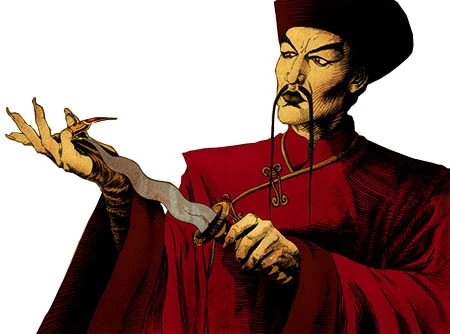President Trump frequently accused China of keeping its currency artificially low against the dollar to make Chinese exports cheaper, stealing American manufacturing jobs.
By Reuters

President Donald Trump declared China the "grand champions" of currency manipulation on Thursday, just hours after his new Treasury secretary pledged a more methodical approach to analyzing Beijing's foreign exchange practices.
In an exclusive interview with Reuters, Trump said he has not "held back" in his assessment that China manipulates its yuan currency, despite not acting on a campaign promise to declare it a currency manipulator on his first day in office.
"Well they, I think they're grand champions at manipulation of currency. So I haven't held back," Trump said.
By Reuters

President Donald Trump declared China the "grand champions" of currency manipulation on Thursday, just hours after his new Treasury secretary pledged a more methodical approach to analyzing Beijing's foreign exchange practices.
In an exclusive interview with Reuters, Trump said he has not "held back" in his assessment that China manipulates its yuan currency, despite not acting on a campaign promise to declare it a currency manipulator on his first day in office.
"Well they, I think they're grand champions at manipulation of currency. So I haven't held back," Trump said.
"We'll see what happens."
During his presidential campaign Trump frequently accused China of keeping its currency artificially low against the dollar to make Chinese exports cheaper, stealing American manufacturing jobs.
But Treasury Secretary Stephen Mnuchin told CNBC on Thursday he was not ready to pass judgment on China's currency practices.
Asked if the U.S. Treasury was planning to name China a currency manipulator any time soon, Mnuchin said he would follow its normal process of analyzing the currency practices of major U.S. trading partners.
The Treasury is required to publish a report on these practices on April 15 and Oct. 15 each year.
"We have a process within Treasury where we go through and look at currency manipulation across the board. We'll go through that process. We'll do that as we have in the past," Mnuchin said in his first televised interview since formally taking over the department last week. "We're not making any judgments until we go continue that process."
A formal declaration that China or any other country manipulates its currency requires the U.S. Treasury to seek negotiations to resolve the situation, a process that could end in punitive tariffs on the offender's goods.
The U.S. Treasury designated Taiwan and South Korea as currency manipulators in 1988, the year that Congress enacted the currency review law.
During his presidential campaign Trump frequently accused China of keeping its currency artificially low against the dollar to make Chinese exports cheaper, stealing American manufacturing jobs.
But Treasury Secretary Stephen Mnuchin told CNBC on Thursday he was not ready to pass judgment on China's currency practices.
Asked if the U.S. Treasury was planning to name China a currency manipulator any time soon, Mnuchin said he would follow its normal process of analyzing the currency practices of major U.S. trading partners.
The Treasury is required to publish a report on these practices on April 15 and Oct. 15 each year.
"We have a process within Treasury where we go through and look at currency manipulation across the board. We'll go through that process. We'll do that as we have in the past," Mnuchin said in his first televised interview since formally taking over the department last week. "We're not making any judgments until we go continue that process."
A formal declaration that China or any other country manipulates its currency requires the U.S. Treasury to seek negotiations to resolve the situation, a process that could end in punitive tariffs on the offender's goods.
The U.S. Treasury designated Taiwan and South Korea as currency manipulators in 1988, the year that Congress enacted the currency review law.
China was the last country to get the designation, in 1994.
The current situation is complicated because China's central bank has spent billions of dollars in foreign exchange reserves in the past year to prop up the yuan to counter capital outflows.
The current situation is complicated because China's central bank has spent billions of dollars in foreign exchange reserves in the past year to prop up the yuan to counter capital outflows.
Trump's pronouncements about the yuan could also complicate matters for Mnuchin as he prepares for his first meeting next month with his Group of 20 finance minister counterparts in Baden Baden, Germany.
Aucun commentaire:
Enregistrer un commentaire